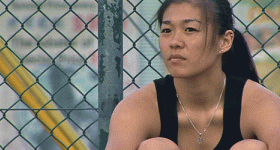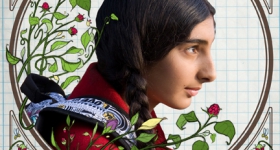Not since Anne Fadiman’s bestselling 1997 book "The Spirit Catches
You and You Fall Down" have Hmong Americans had the chance to be so visible in
mainstream pop culture: Director Clint Eastwood’s next film "Gran Torino," shot in
Detroit in August, will feature an almost all-Hmong leading cast.After
holding open casting calls attended by hundreds of Hmong in the communities of
Saint Paul, Fresno and Detroit, Eastwood settled on 10 Hmong leads and
supporting players, all but one of whom are first-time actors. Hmong crew,
cultural consultants and dozens of extras were also hired.The screenplay
by Nick Schenck, a white Minnesotan, features Walt, a cantankerous Polish
American man, played by Eastwood, who has just lost his wife and is estranged
from his children and grandchildren. Disgruntled that his urban neighborhood is
being populated by more and more Hmong arrivals, he keeps a cautious distance
until the nerdy teenage boy next door, Tao, tries to steal his vintage Gran
Torino car to prove himself to a Hmong gang. Walt extracts work from Tao as
payback, and in the process, becomes friendly with Tao and his family. He is
tutored in Hmong culture, and his racist stance gradually chips
away.
On one hand I think it's fine to tell a
story from a white POV and writer in the sense of education and learning, because everyone goes through that; there has to be an evolution (no one comes
out of the womb enlightened).
But at the same time I think there's cause for concern
when you hear statements like this (from eastwoodmovie-hmong.com):
Credit goes to the Eastwood people for putting in the extra effort
to find Hmong actors and taking a leap of faith to cast them for the roles. This
is good news, but we are still disappointed by the careless cultural mistakes
and use of stereotypes for the Hmong characters in the script. Until we see
something better, our thumbs are still down.
And this (from
the original AsianWeek
article):
Even though a real Hmong shaman was cast to play a ritualist, his
expertise was overridden by the screenplay and the filming, which distorted the
ceremonial scenes by making them inaccurately exotic
I still have hope for the film though even with the above, and even though Eastwood and the writer aren't Hmong, it doesn't mean they don't have something important to say, or that we can't all still learn from it, or that it's just going to be bad. And to be honest, from what I've seen, Hmong Americans who play the majority of
roles in this film are cast as every single different type of character, and
that's a great thing to see.
But I'll still have to see the final. I'll have to
see if there's a line that's crossed between exoticizing Hmong American culture and playing into stereotypes (based on the final cut), or helping to represent it as a part of the American story. I'll have to see if the characters that are Hmong American aren't taking a back
seat in the script and in the ending (will it just be a white character who
comes in and saves the day, will it be with the help of his new-found friends,
or does it matter in the context of the story?) -- and then I'll also be thinking
through the sheer number of Hmong Americans who are helping behind the scenes making
sure aspects of the movie are culturally accurate in the end (versus getting overridden).
I guess I'll just be waiting to see, learning more, and crossing my fingers that Eastwood
and everyone involved gets this right.









Comments